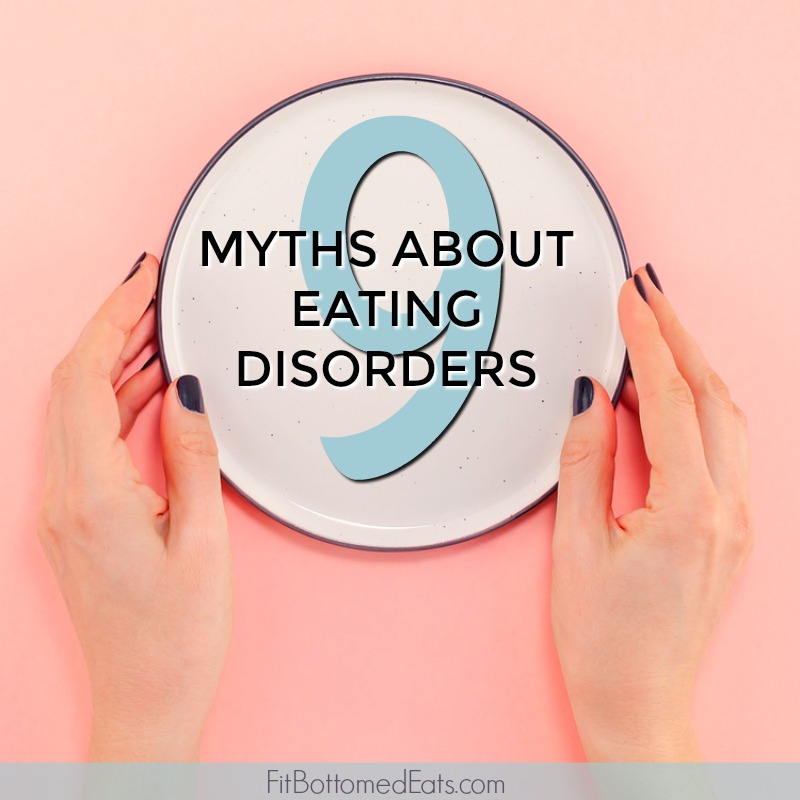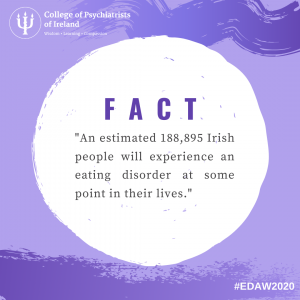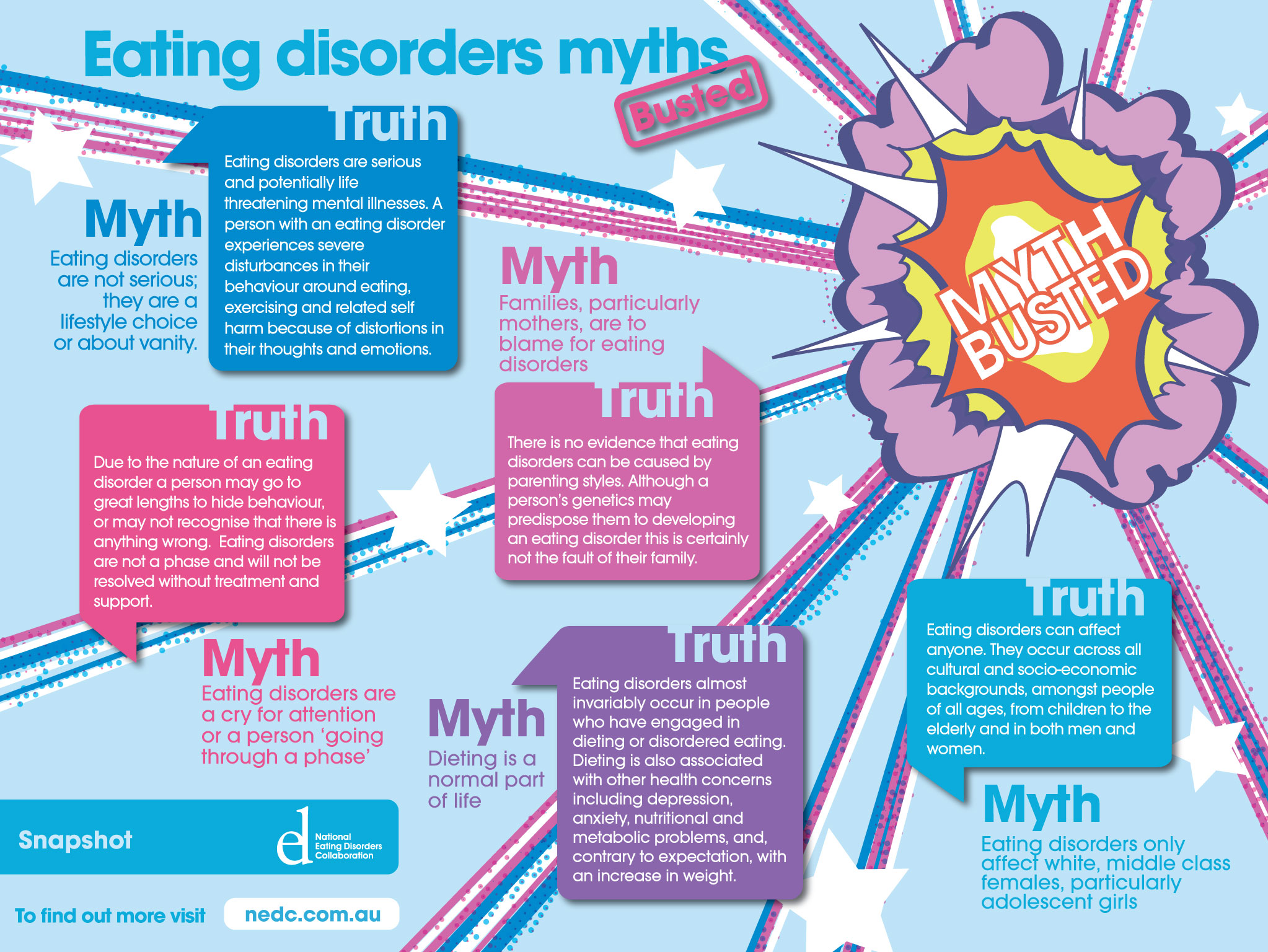Eating Disorder Myths
Although most people report the onset of their eating disorder in their teens and young adulthood there is some evidence that people are being diagnosed at younger ages. Eating disorders are not serious.
 9 Myths About Eating Disorders Fit Bottomed Girls
9 Myths About Eating Disorders Fit Bottomed Girls
From my experience both struggling and recovering from an eating disorder I found the ten myths below to be the most common.

Eating disorder myths. Many eating disorder sufferers report that their thoughts and behaviors started much earlier than anyone realized sometimes even in early childhood. Eating disorders are just an adolescent phase so they should be ignored and they will go away on their own. Effective targeted treatment is more likely to result in recovery than ignoring the unhealthy habit and waiting for.
An eating disorder is a serious mental illness and it is unlikely to. Parents or other caretakers and supports play an integral role in helping a loved one with an eating disorder to recover. Eating disorders generally begin during teenage years as a means to cope with normal developmental tasks like identity formation andor establishing independence.
Eating disorders are just an extreme form of dieting. Sufferers do not intentionally starve themselves or purge. A societal factor like the media-driven thin body ideal is an example of an environmental trigger that has been linked to increased risk of developing an eating disorder.
Although there is often an association between body dissatisfaction and eating disorders eating disorders are not someone being vain or just wanting to look a certain way. 1 They are about the food -Wrong. Eating disorders are a mental health problem and therefore have no intended consequence.
The sufferer is not trying to hurt anyone including themself. The association between body dissatisfaction and eating disorders can sometimes lead people to mistakenly believe that eating disorders are prompted by vanity and represent a lifestyle choice to attain body ideals. Everyone with an eating disorder is underweight.
Once an eating disorder is established it can become entrenched and it can be difficult to get out of it on your own. Eight Common Myths about Eating Disorders Eating disorders are not serious. Unlike dieting eating disorders arent just about losing weight.
They are not conspired or planned. Eating disorders are complex disorders and it is known that a persons risk for developing an eating disorders is due in large part to genetic factors. Eating disorders do not discriminate based on body-size.
Eating disorders are someone being vain and seeking attention Fact. They are bio-sociocultural diseases. This is a common myth associated with eating disorders but we know this is not true.
Compulsive eating is not an eating disorder. People with eating disorders do this to hurt family and friends. Eating disorders effect individuals across the weight spectrum.
Binge eating disorder BED is more common than anorexia and bulimia combined and people also struggle with OSFED ARFID and compulsive overeating or disordered eating more generally. They are a lifestyle choice or about vanity. They are a lifestyle choice or about vanity Dieting is a normal part of life Eating disorders are a cry for attention or a person going through a phase.
Recovery from eating disorders is rare. Nobody chooses an eating disorder. Eating disorders are almost never about the physical food.
Is it also important to note that anorexia is not the worst or the only serious eating disorder. Current thinking by eating disorder researchers and clinical experts holds that eating disorders are caused by both genetic and environmental factors.
Eating Disorders Myths And Realities
 Eating Disorders Melbourne Mind Body Well
Eating Disorders Melbourne Mind Body Well
 Eating Disorder Statistics Campus Health
Eating Disorder Statistics Campus Health
 Fact Or Fiction 8 Common Myths Around Eating Disorders The College Of Psychiatrists Of Ireland
Fact Or Fiction 8 Common Myths Around Eating Disorders The College Of Psychiatrists Of Ireland
 Eating Disorders Explained Eating Disorder Myths And Facts Anorexia Nervosa Bulimia Nervosa Stress Eating Symptoms Treatments Health Tips And More Facts Information Kindle Edition By Earlstein Frederick Professional Technical
Eating Disorders Explained Eating Disorder Myths And Facts Anorexia Nervosa Bulimia Nervosa Stress Eating Symptoms Treatments Health Tips And More Facts Information Kindle Edition By Earlstein Frederick Professional Technical
 Eating Disorders Common Myths Facts Headline
Eating Disorders Common Myths Facts Headline
5 Common Binge Eating Disorder Myths You Need To Know Alison Pelz Ld Rd Cde Lcsw
 Eating Disorder Myth Busters Eddins Counseling Group Houston Tx
Eating Disorder Myth Busters Eddins Counseling Group Houston Tx
 Eating Disorders Awareness University College Welfare
Eating Disorders Awareness University College Welfare
 Eating Disorder Myths Kelty Eating Disorders
Eating Disorder Myths Kelty Eating Disorders
 Willson It S Time To Talk About Eating Disorders The Rocky Mountain Collegian
Willson It S Time To Talk About Eating Disorders The Rocky Mountain Collegian
 Neda On Twitter Q1 What Are The Most Common Myths And Misconceptions Surrounding Body Image And Eating Disorders Nedawareness
Neda On Twitter Q1 What Are The Most Common Myths And Misconceptions Surrounding Body Image And Eating Disorders Nedawareness

Comments
Post a Comment